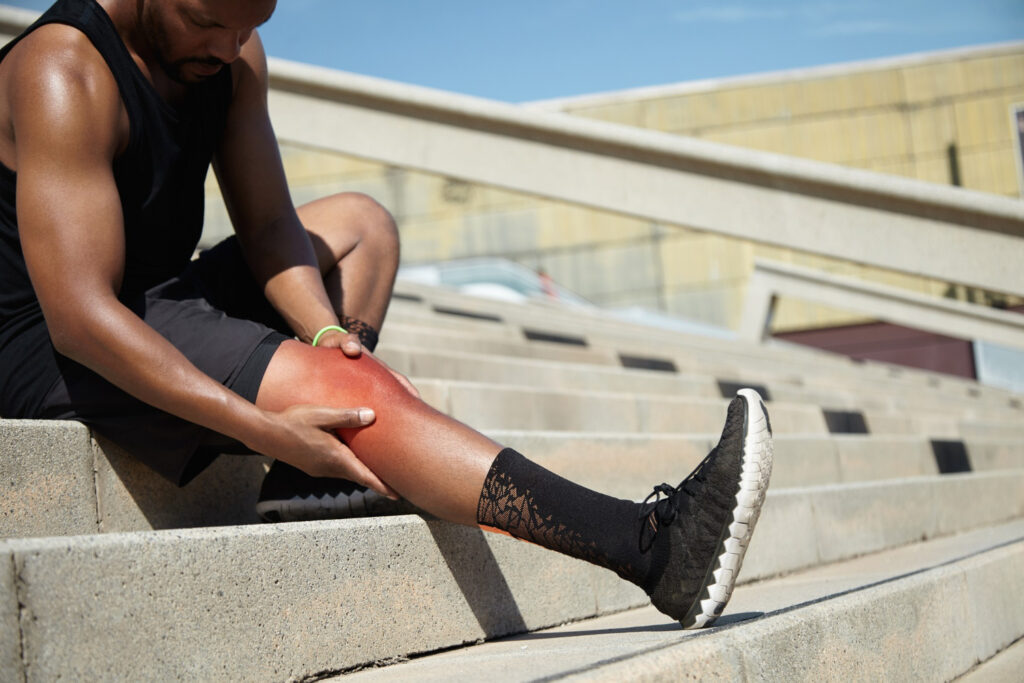
Tendons are one of the body parts that transmit force from muscles to bones, enabling movement. The strong yet fragile structures can sometimes suffer injuries, including strains or tears, because of excess pressure, repetitive movements, or sudden trauma. Special nutrition is one of the means to accelerate recovery and regeneration of tissues after tendon repair. This article discusses the nutrients implicated in tendon healing and how nutrition can speed up the repair of these tissues.
Tendon Structure and Function
Tendons are connective tissues that link muscles to bones. When muscles contract, it passes over the force to bones through tendons to effect movement. Due to this fact, tendons have to bear a tremendous tension and pressure, and so their durability must be very high. The structure and strength of tendons are essentially provided by collagen, a tough, flexible protein. In some instances, however, tendons get damaged due to very intense sporting activities, poor movements, or even natural body wear and tear. These can be in the form of strains, partial tears, or inflammation of tendons, leading to pains and limited mobility.
Nutritional Requirements for Tendon Repair
This will involve the increased demand of the body for nutrition in order to repair the injured tendon. These include proteins, vitamins, minerals, and fatty acids that assist in the acceleration of the repair process and improvement of functionality. Below, we take a close look at these nutrients and their roles in tendon healing:
- Proteins
Proteins are the structural building blocks of tissues, essential in tendon repair processes. In addition, proteins play a very significant role in the synthesis of collagen, the major structural component of tendons. When the tendon is injured, the body needs more protein to rebuild the torn tissue. Good lean protein foods that can help in tendon repair include chicken and turkey, fish, eggs, low-fat dairy products, and plant-based options such as beans, lentils, and nuts.
- Omega-3 Fatty Acids
Omega-3 fatty acids are also found in oily fish besides flaxseeds, including salmon and tuna. These have anti-inflammatory properties. Though inflammation is the normal response of the body after a tendon injury, chronic inflammation may impede the repair process. Omega-3 can reduce inflammation and increase tendon recovery speed. Other good sources of omega-3 include walnuts, chia seeds, and flaxseeds, alongside supplements in the form of fish oil.
- Vitamin C
Vitamin C is one of the most important vitamins for repair in the tendons. It contributes to the development of collagen, the major protein that comprises tendons and other connective tissues. A deficiency in vitamin C may weaken the repair process and even cause further tendon damage. Citrus fruits such as oranges, grapefruits, and lemons are good sources of vitamin C, as well as strawberries, kiwis, bell peppers, broccoli, and spinach.
- Zinc
Tissues of all kinds need zinc because it is a vital trace metal to deal with their repair and regenerating cycle. Zinc contributes to cell proliferation or mitosis and protein synthesis in promoting the tendon healing process rapidly. A deficiency of it will slow down the rehabilitation pace. Zinc is plentiful in red meat, fish, sea foods like shellfish nuts, and seeds, notably pumpkin and sesame seeds.
- Vitamin D and Calcium
Vitamin D and calcium are raw materials that maintain the health of bones and tendons. Vitamin D is a fat-soluble vitamin and enhances the absorption of calcium. It is thus important for the health of the skeletal system and the connective tissues. Lack of vitamin D has indeed been proved to weaken the tendons and delay their healing process. Dietary sources are sun light, oily fish such as salmon and sardines, egg, fortified milk products, and supplements. Other good sources of calcium include milk, yogurt, and cheese; canned fish that contains bones – including sardines and tuna; leafy green vegetables, including broccoli and spinach; and almonds.

Other Nutrients and Supplements for Tendon Repair
- Glutamine
Glutamine is a non-essential amino acid; however, it is highly important in the repair and regeneration of connective tissues, including tendons. Glutamine can be synthesized in the body, but stressors such as injury or intense exercise increase demand. Glutamine directly plays a role in protein synthesis to promote the healing of damaged cells and tissues. Foods rich in glutamine are lean meats like chicken and turkey, eggs, dairy products like milk and yogurt, leafy vegetables such as spinach, legumes, and nuts.
- Chondroitin and Glucosamine
Chondroitin and glucosamine are the naturally happening active ingredients of joints and tendons. The precursors or the building blocks in the mechanisms for repair of the cartilages and the connective tissues are these substances. Many studies report that the oral administration of chondroitin-glucosamine supplements exerts pain reduction and prevents inflammation among persons suffering from tendon and joint injuries and accelerates the tissue regeneration processes. Supplements are highly recommended for athletes and patients who suffer from tendon injuries. However, it is always better to consult a doctor or nutritionist to recommend the dosage one may need.
- Antioxidants
Antioxidants are at the heart of the body’s mechanisms of defense against oxidative stress and free radical-induced damage. The injury to tendons can interfere with the processes of healing by encouraging an inflammatory process and inducing oxidative stress. The ingestion of antioxidants reduces such injury and speeds up recovery. Foods rich in antioxidants include leafy, green vegetables, colorful fruits, green tea, nuts, and seeds. Various examples include spinach and kale, strawberries, blueberries, and oranges, green tea, almonds, and sunflower seeds.

Additional Nutrition Tips While Undergoing Tendon Healing
- Meal Planning for the Day’s Nutritional Needs
The nutrition in tendon healing should absolutely meet all bodily needs of protein, vitamins, minerals, and other nutritional needs. Meals prepared from a well-planned menu containing protein foods, vitamin C, omega-3 fatty acids, and other dietary needs should be nourishing; for example:
- Breakfast: Eggs, fruits rich in vitamin C, and whole wheat bread.
- Lunch: Salmon, rich in omega-3 fatty acids, can be eaten with the addition of leafy greens and brown rice.
- Snacks: Nuts and seeds are very good sources for zinc and antioxidants.
- Dinner: May include lean meat or chicken, with the inclusion of legumes and vegetables.
- Hydration
Adequate hydration is also one of the most critical factors in tendon healing. Water enables the transportation of nutrients to the cells and waste products away from the sites. It also keeps joints greasy and prevents dryness of connecting tissues. It is recommended to drink at least 8 glasses of water daily during recovery.
- Foods to Avoid
While repairing tendons, avoid processed foods, added sugars, and saturated fats, as they will enhance inflammatory activities in the body, perhaps making the healing process slower. Instead, use natural and whole foods such as fruits, vegetables, and lean sources of protein.
- Using Supplements Under Medical Supervision
While many of these supplements could have salutary effects on the tendons, this normally has to be with the guidance of a specialist. As a matter of fact, too much of one thing or the wrong type may do harm rather than good to your body. The nature and dosage could better be recommended by the doctor or nutritionist based on individual needs.
Final Thoughts
Tendon repair is a very complicated process, and besides resting and physical treatment, it needs to be supported with proper nutrition. Patients suffering from such kinds of injuries should consult with a nutritionist in order to get the personalized diet for recovering in the shortest time and with maximum results. Proper nutrition will not only speed tendon healing but also will contribute to general health and prevent further injuries.
References
Nutritional research may be useful in treating tendon injuries
The impact of nutrition on tendon health and tendinopathy: a systematic review








No comment yet, add your voice below!